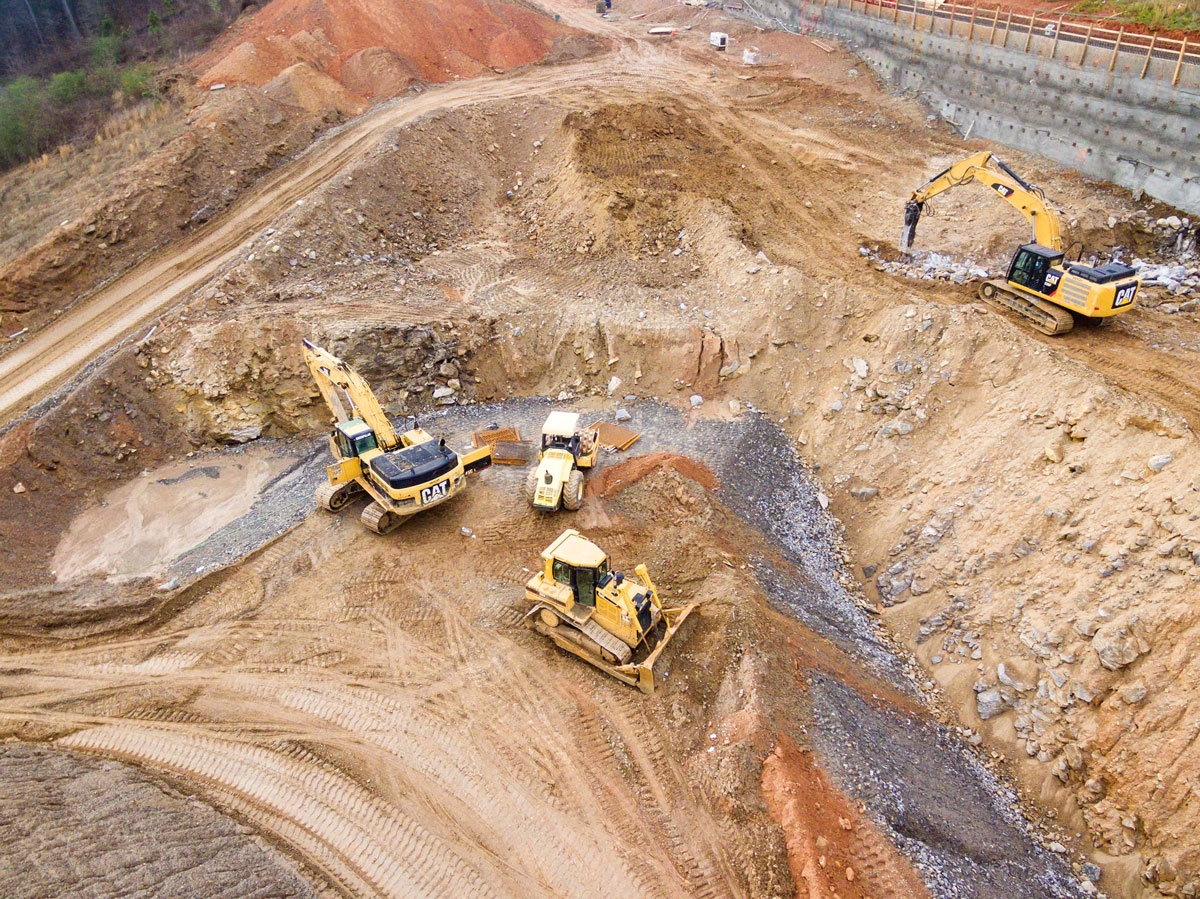Heavy Equipment Rental: High-Quality Machinery for Rent
Heavy Equipment Rental: High-Quality Machinery for Rent
Blog Article
Leasing Vs. Purchasing Building And Construction Devices: Making the Right Option for Your Job
When beginning on a construction job, among the crucial decisions that forecast stakeholders and managers deal with is whether to get or rent out building and construction devices. Both alternatives have their disadvantages and benefits, making the choice a critical one in the task preparation process. The decision depends upon different aspects such as price considerations, task period, equipment upkeep, scalability, danger, and flexibility monitoring. Each aspect plays a crucial duty in identifying one of the most ideal path for the job's devices requirements. rental company near me. Let's explore these factors better to understand just how they affect the decision-making process and eventually the success of the task.
Cost Factors To Consider
Leasing equipment typically requires lower initial settlements compared to purchasing, making it an attractive choice for short-term projects or contractors with budget constraints. In the long run, continually renting out tools can gather greater costs than acquiring, specifically for extensive jobs.
On the other hand, purchasing building and construction equipment involves higher upfront costs but can result in lasting financial savings, especially for long-term jobs or frequent users. Possessing devices supplies flexibility, ease, and the capacity for resale value once the project is finished. Furthermore, possessing tools permits for customization and experience with specific machinery, possibly enhancing performance and productivity on-site. Ultimately, the choice in between renting out and purchasing construction equipment depends upon the job's duration, frequency of use, budget plan factors to consider, and long-term economic objectives.
Project Period

Conversely, for long-term projects or recurring building work, buying tools can be the more affordable choice. Buying tools can lead to cost savings in the long run, particularly if the tools will certainly be often used. In addition, owning devices offers a sense of control over its availability and enables for personalization to fit certain job needs.

Devices Maintenance
Given the crucial role project period plays in establishing the most economical technique in between purchasing and leasing building tools, the focus now shifts towards taking a look at the crucial aspect of devices upkeep. Proper upkeep is crucial for making sure the optimal efficiency and durability of building and construction equipment. Renting out tools frequently comes with the benefit of having properly maintained equipment provided by the rental business. This can alleviate the burden of maintenance jobs from the job proprietor or professional, conserving time and effort. On the other hand, having devices calls for a positive technique to upkeep to prevent malfunctions, make certain security, and expand the equipment's life-span. Normal examinations, maintenance, and timely repair services are required to maintain owned and operated tools in leading functioning problem. Consider upkeep prices when choosing between leasing and getting, as neglecting maintenance can result in expensive fixings, downtime, and job hold-ups. Inevitably, a well-maintained construction equipment fleet, whether leased or owned, is essential for the effective and reliable completion of building projects.
Flexibility and Scalability
In the realm of building devices management, the aspect of adaptability and scalability holds considerable significance for task effectiveness and resource usage. Opting to rent out construction tools offers a high level of versatility as it enables for the quick modification of tools types and quantities based on the advancing demands of a task.
Moreover, scalability, another crucial factor, is inherently linked to adaptability. Renting building equipment uses the advantage of quickly scaling procedures up or down as task needs vary. Service providers can swiftly include or exchange tools to match the job's transforming needs without the restraints of possessing possessions that might become underutilized or obsolete. This ability to scale sources efficiently can cause expense financial savings and improved project timelines, making renting out a desirable alternative for projects requiring versatility and responsive resource appropriation.
Risk Administration
Reliable risk management in building equipment operations is critical to ensuring you can find out more task success and mitigating prospective economic losses. Building jobs inherently involve different dangers, such as tools break downs, crashes, and job delays, which can significantly affect the task timeline and spending plan. By carefully thinking about the risks connected with owning or renting out building equipment, task supervisors can make informed choices to minimize these possible threats.
Renting building tools can provide a level of risk reduction by moving the responsibility of upkeep and repairs to the rental firm. This can minimize the economic worry on the task proprietor in situation of unanticipated equipment failures (equipment rental company). Additionally, renting offers the versatility to gain access to specialized equipment for particular job phases, lowering the threat of possessing underutilized equipment
On the various other small construction equipment hand, owning building equipment supplies a sense of control over its use and upkeep. Nevertheless, this additionally indicates bearing the complete duty for repair work, upkeep costs, and depreciation, enhancing the financial dangers connected with devices ownership. Mindful risk assessment and factor to consider of aspects such as task duration, tools usage, and upkeep demands are vital in identifying one of the most ideal alternative for reliable risk administration in construction tasks.
Verdict
In verdict, when choosing in between buying and leasing building devices, it is essential to take into consideration cost, task duration, tools upkeep, adaptability, danger, and scalability management. Each factor plays a critical function in establishing one of the most suitable choice for the task available. By thoroughly assessing these aspects, task supervisors can make an enlightened choice that lines up with their budget, timeline, and overall job objectives.

Report this page